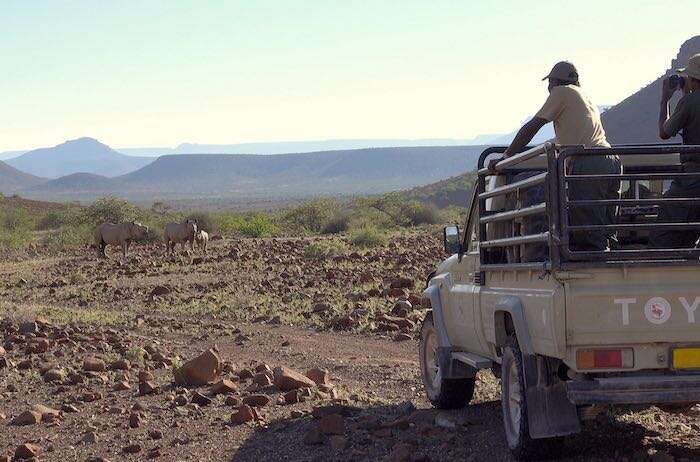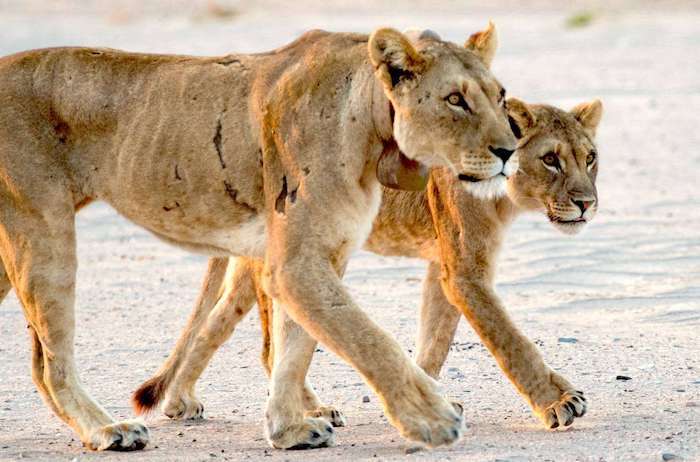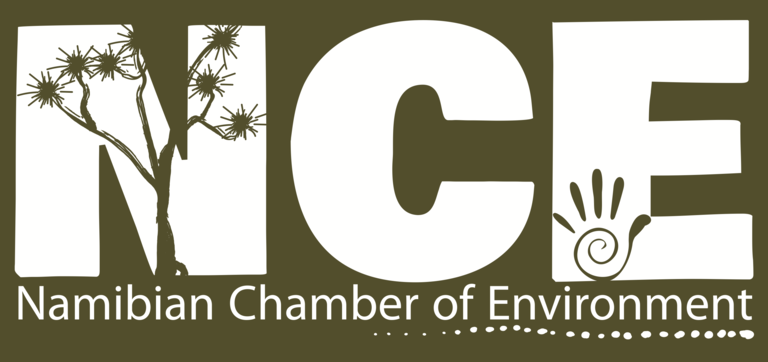
EduLink: Teaching Namibia’s far-flung teachers.
By Holger Vollbrecht and Nathan Vyklicky
EduVentures Trust
9th August 2019
Classrooms are key to teaching Namibia’s nearly one million school-age children about conservation – yet Namibian teachers receive little training on environmental education. This new programme equips teachers with all-Namibian lessons to create a generation of environmental heroes, in every region of our vast country.
Early morning, Etosha National Park. You can smell the cool, humid tang of night in the savannah still hanging on the air. The twittering of red-eyed bulbuls wakes a group of francolins, who add their chatter to the breaking day. Vilho Absalom, a Ministry of Environment and Tourism warden at the Namutoni Environmental Education Centre, is already hard at work. He is setting up an outdoor workshop, which he usually leads as part of a three-day course for schoolchildren visiting the park.
Today, though, is a little different. Instead of children, fellow environmental educators arrived the previous night, travelling from government institutions and non-profit organisations in every corner of the country. These specialist educators hail from places that represent all the landscapes of Namibia: Namib Desert, Waterberg, Kavango and Zambezi, Succulent Karoo and the Atlantic Coast. They are here to work on a new kind of nature education for the nation.
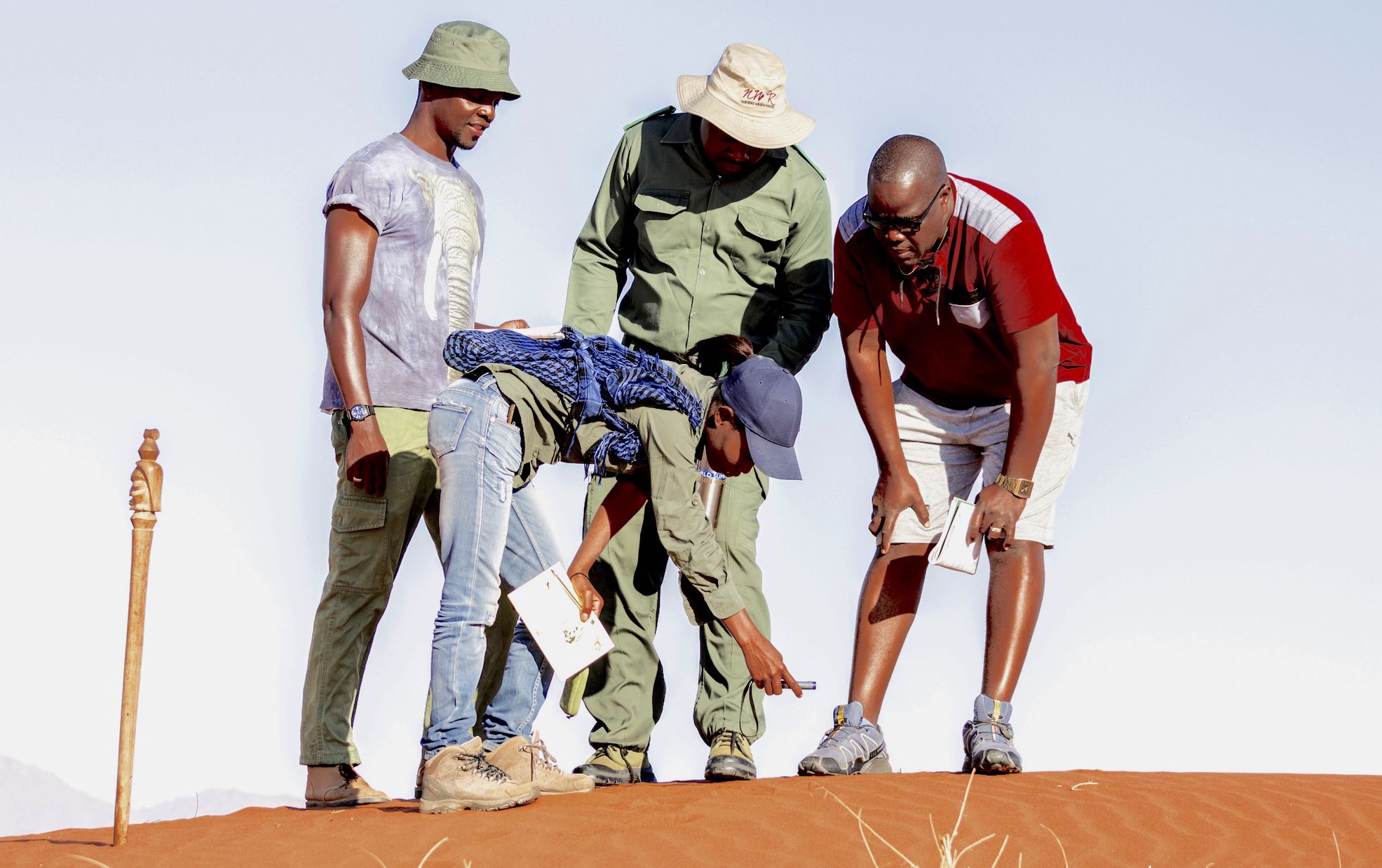
Not all classrooms are five-star affairs
These specialists were invited by Corris Kaapehi and Maria Johannes of EduVentures, the National Museum of Namibia’s education programme. Together, they form a new network which is collaborating to give Namibian teachers a new level of support nationwide. Corris describes what life can be like for the teachers they are trying to help: “In a remote school located in a village with only 150 people, their classroom is under a tree – you cannot even teach some of the practical stuff in the textbooks. For example, the books call for a microscope, but rural teachers have no access to this kind of equipment. So your classroom, after a while, becomes boring.”
Environmental education in Namibia: The story so far
To be sure, excellent conservation curricula do exist. Following Namibia’s independence, the Desert Research Foundation of Namibia created Enviroteach, focussing on outdoor activities for teachers. The Enviroteach Toolbox was recognised for its outstanding quality by the International Union for Conservation of Nature in their “Education and Sustainability: Responding to the Global Challenge” report. The challenge is getting these tools into the remote teachers’ hands, and making sure they have sufficient training to use them once they do. Environmental education remains profoundly neglected in rural Namibian schools.
More recently, Namibians have been innovating to reach young people in new ways. In 2018 the Namib Desert Environmental Education Trust (NaDEET) won one of three international UNESCO-Japan Prizes for Education on Sustainable Development, for teaching immersive, hands-on sustainable living at their education centre in the NamibRand Nature Reserve. In another initiative the Think Namibia campaign hosts an online platform for young environmental activists and entrepreneurs. Since 2014, EduVentures has operated the Ombombo (“Butterfly”) mobile classroom, a modified truck which travels to schools across the country, where it opens up into a fully equipped smart classroom that allows us to offer a five-day, mixed-method conservation programme with Internet, “bush cinema” and lab equipment.
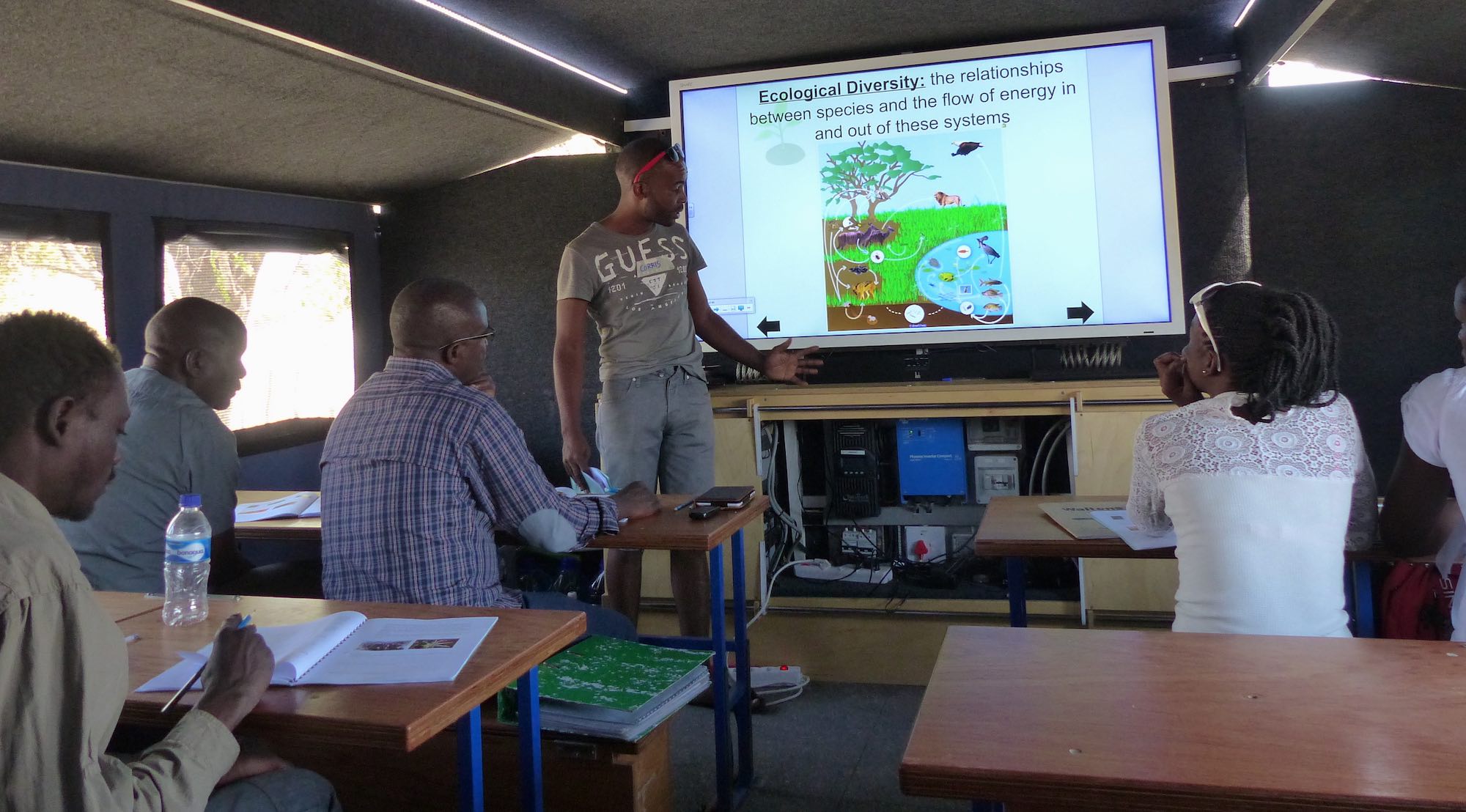
EduLink, connecting rural Namibian teachers
The EduVentures mobile classroom project struck an even deeper chord than expected. As one of the teachers said: “We want the same kind of education. Since I came here as a teacher, I have never really had an opportunity to revive my knowledge. I am isolated from all the other teachers – I am located here in the middle of nowhere.” Corris at EduVentures responded to this and similar requests: “Why don’t we set up a programme that targets the teachers? They spend the most time with the learners at school, and have the biggest influence.”
The new EduLink project was thus born in 2018, with support from Solidaritätsdienst International (SODI) Berlin. Specialists from nine Environmental Education Centres across Namibia were strategically selected to serve all 14 regions of the country. They now form a network to tailor conservation curricula for their regions and share them with hundreds of teachers from various towns and villages. These centres were already teaching learners on field trips: Why not teach teachers as well, to take lessons and skills back to their classes? The network brainstormed the most pressing issues facing Namibia, and EduVentures helped develop teaching aids that reflected these. Not only does this strengthen bonds and learning among Namibia’s distant Environmental Education Centres, it connects rural teachers to the best the system has to offer.
Through EduLink, teachers can arrive at a participating centre and experience – many for the first time – cutting-edge methods such as role-playing and arts-based education, smart boards and creative outdoor learning sessions using everyday materials. By playing themselves, the teachers learn how to use play with their learners; they return home with new ideas and practical ways to implement these ideas.
Corris illustrates the process with one activity that the network developed: “In our ‘bucket game’ the teacher gets the learners to take buckets and collect different ecosystem components.” He further explains, “The teachers take many informative booklets and handouts back with them, which they can refer to when they are back at their schools.” Even more importantly, they are now linked to a group of teachers who have a common vision for educating young Namibians about their environment.
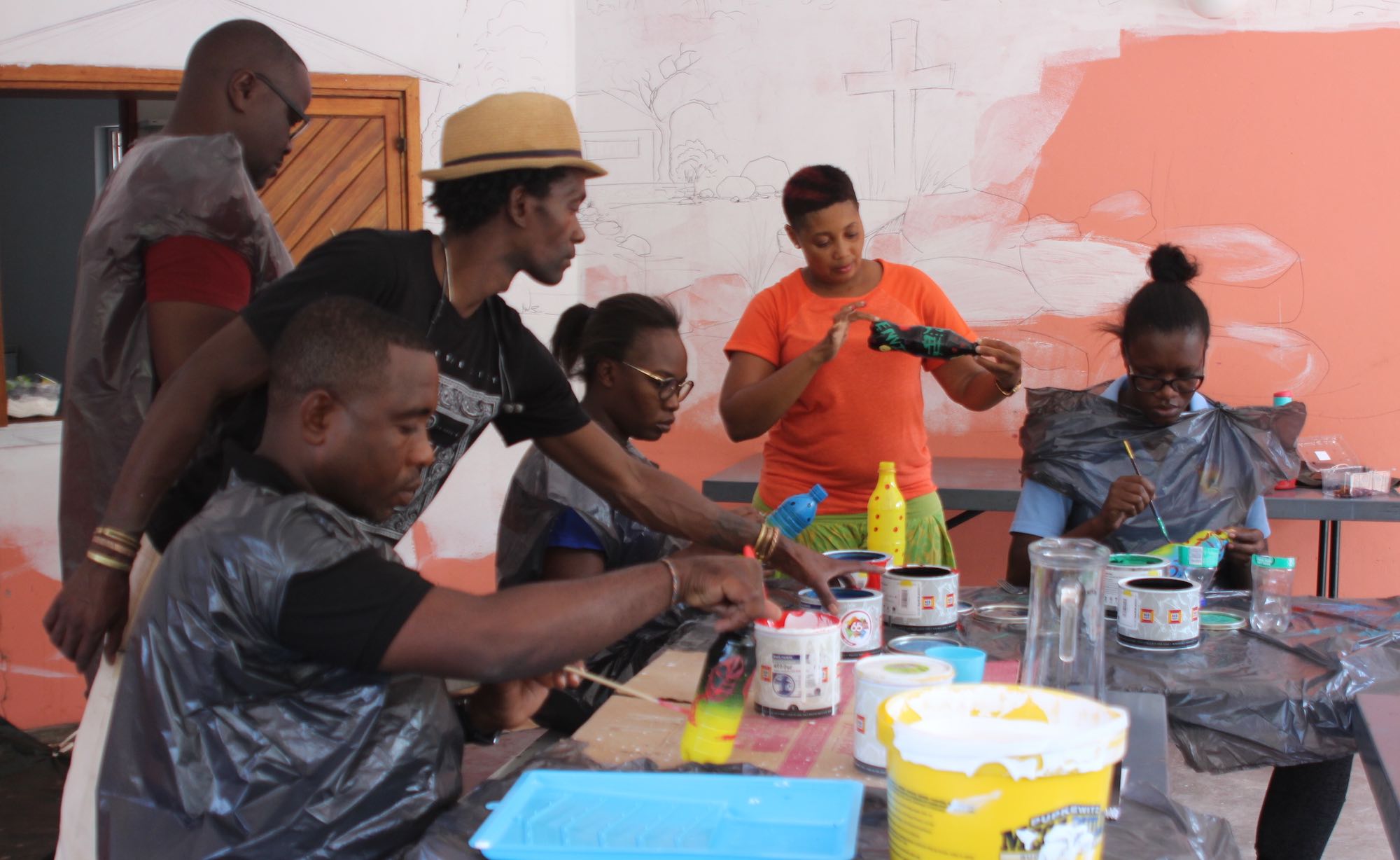
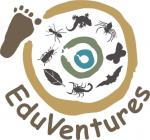
Find out more about
EduVentures
and their education projects across Namibia here:
eduventures-africa.org

For articles on similar topics, please click one of the following options:
If you enjoyed this page, then you might also like:
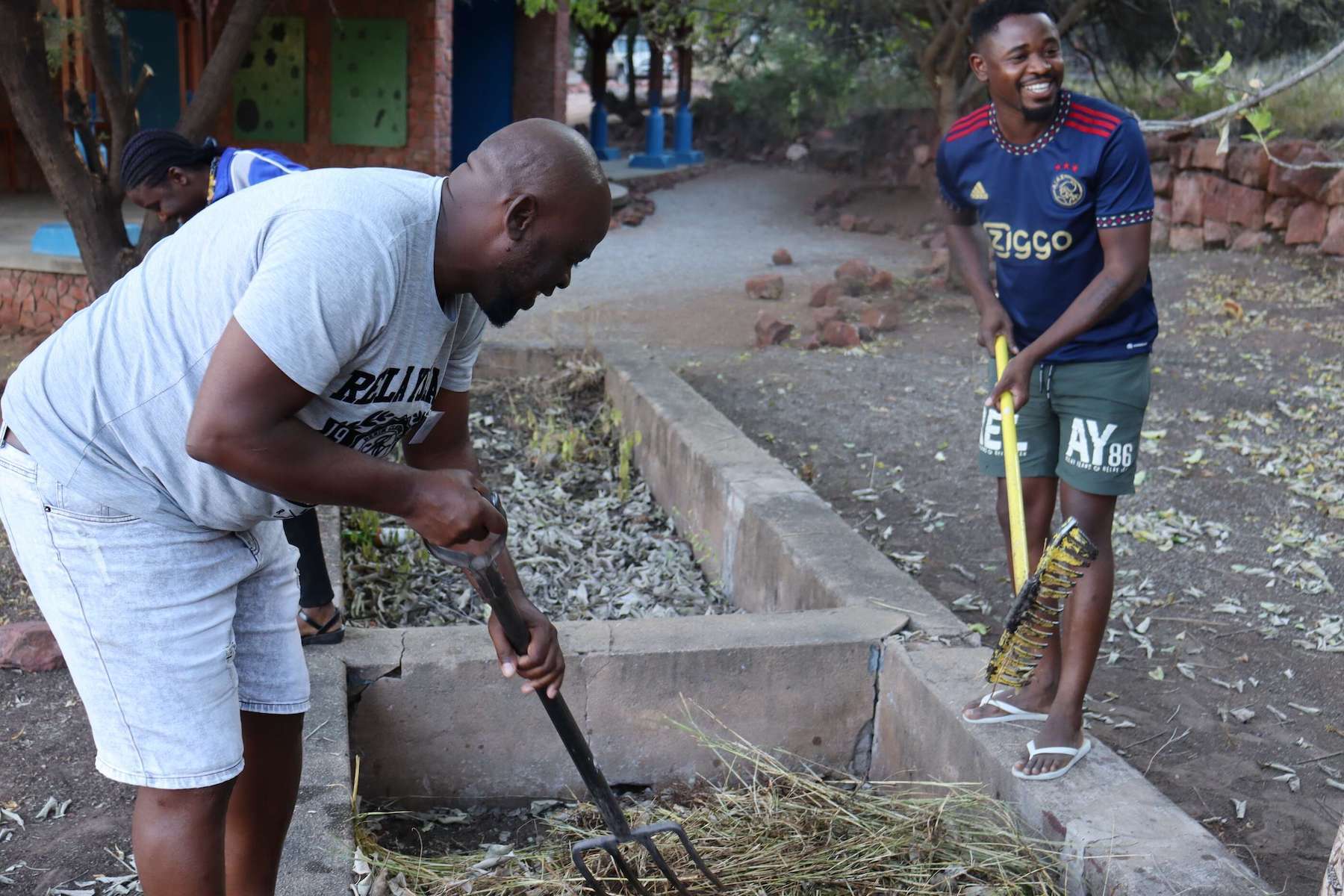
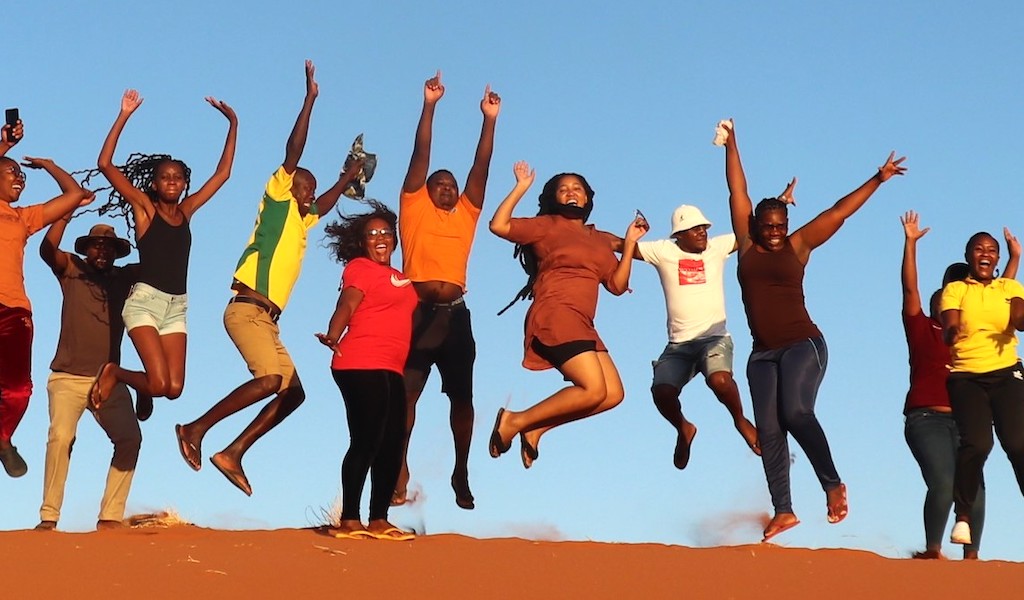
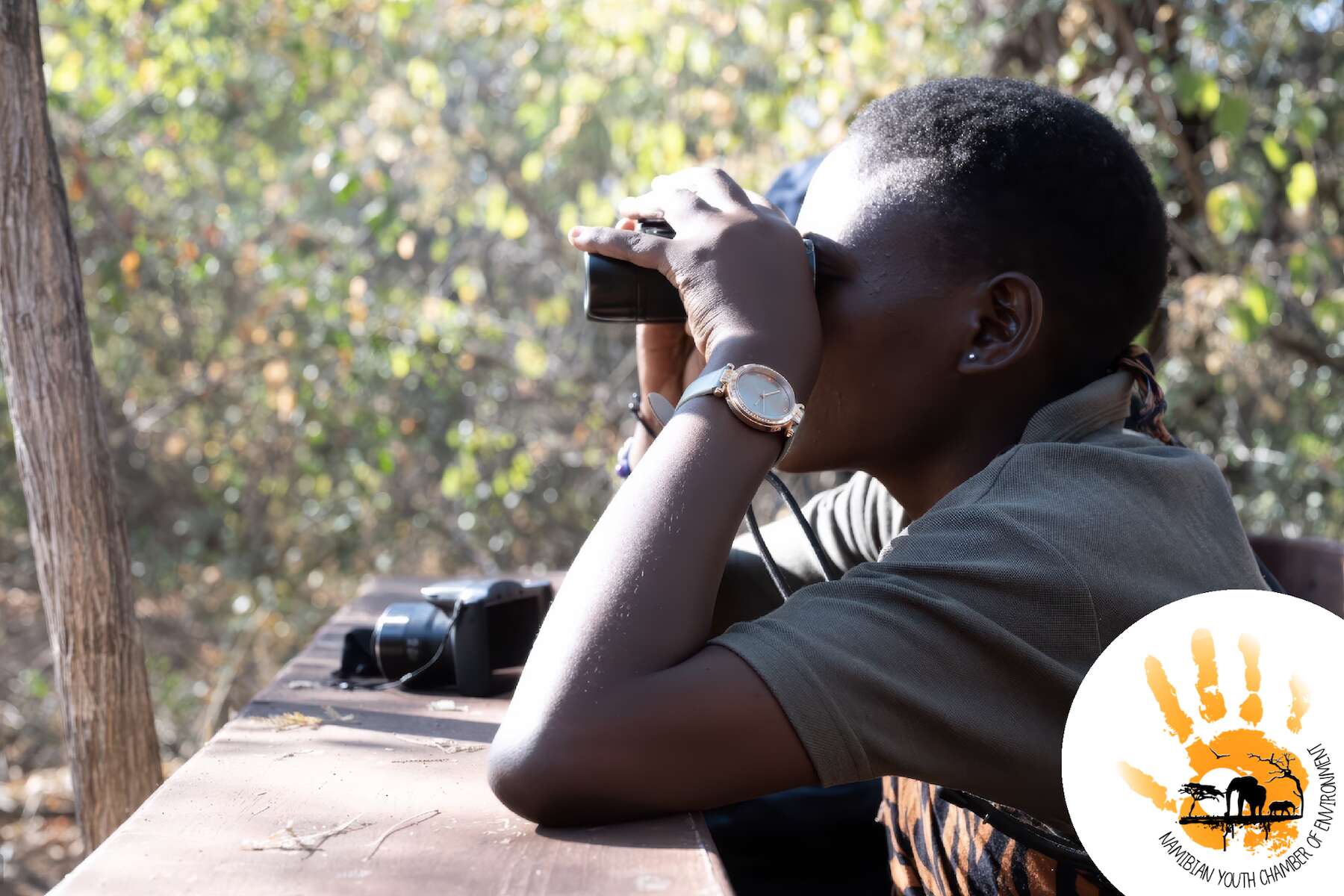
For more great articles from Conservation Namibia see below...
Conservation Namibia brought to you by:
We use cookies to monitor site usage and to help improve it. See our Privacy Policy for details. By continuing to use the site, you acknowledge acceptance of our policy.





